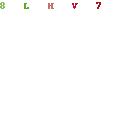Mothers' Day
Mother's Day is a day honoring mothers, celebrated on various days in many places around the world. It complements Father's Day, the celebration honoring fathers.
History
Different countries celebrate Mother's Day on various days of the year because the day has a number of different origins.
One school of thought claims this day emerged from a custom of mother worship in ancient Greece, which kept a festival to Cybele, a great mother of Greek gods. This festival was held around the Vernal Equinox around Asia Minor and eventually in Rome itself from the Ides of March (15 March) to 18 March.
The ancient Romans also had another holiday, Matronalia, that was dedicated to Juno, though mothers were usually given gifts on this day.
In some countries Mother's Day began not as a celebration for individual mothers but rather for Christians.
Mothering Sunday in Britain and Ireland
Mothering Sunday, also called "Mothers' Day" in the United Kingdom and Ireland falls on the fourth Sunday of Lent (exactly three weeks before Easter Sunday). It is believed to have originated from the 16th century Christian practice of visiting one's mother church annually, which meant that most mothers would be reunited with their children on this day. Most historians believe that young apprentices and young women in servitude were released by their masters that weekend in order to visit their families.[1] As a result of secularization, it is now principally used to celebrate and give thanks for mothers, although it is still recognised in the historical sense by some churches, with attention paid to Mary the mother of Jesus as well as the traditional concept 'Mother Church'.
Mothering Sunday can fall at earliest on March 1st (in years when Easter Day falls on March 22nd) and at latest on April 4th (when Easter Day falls on April 25th).
Father's Day
Fathers' Day is a secular celebration inaugurated in the early twentieth century to complement Mother's Day in celebrating fatherhood and parenting by males, and to honor and commemorate fathers and forefathers. Fathers' Day is celebrated on a variety of dates worldwide and typically involves gift-giving to fathers and family-oriented activities.
International history and traditions
Germany
In Germany there is no such thing as Father's Day as celebrated throughout the western world. There are two terms and/or events of an older origin that while similar in name, have entirely different meanings. Männertag, is always celebrated on Ascension Day (the Thursday forty days after Easter), which is a federal holiday. Regionally, it is also called men's day, Männertag, or gentlemen's day, Herrentag. It is tradition to do a males-only hiking tour with one or more smaller wagons, Bollerwagen, pulled by manpower. In the wagons are wine or beer (according to region) and traditional regional food, Hausmannskost, which could be Saumagen, Liverwurst, Blutwurst (Blood Sausage), vegetables, eggs, etc.
Männertag and Herrentag are very much maligned and center around either becoming inebriated and/or passing the tradition of extreme alcohol consumption onto the younger men. Obviously, these holidays/concepts have nothing to do with the traditional concept of Father's Day where the role of Dad is celebrated.
Roman Catholic tradition
In the Roman Catholic tradition, Fathers' Day is celebrated on Saint Joseph's Day, March 19, though in most countries Fathers' Day is a secular celebration.
Moral : JANGAN SAMBUT MOTHER'S DAY NGAN FATHER'S DAY. Hanya sesuai untuk Non-Muslim SAHAJA.
Subscribe to:
Post Comments (Atom)










No comments:
Post a Comment